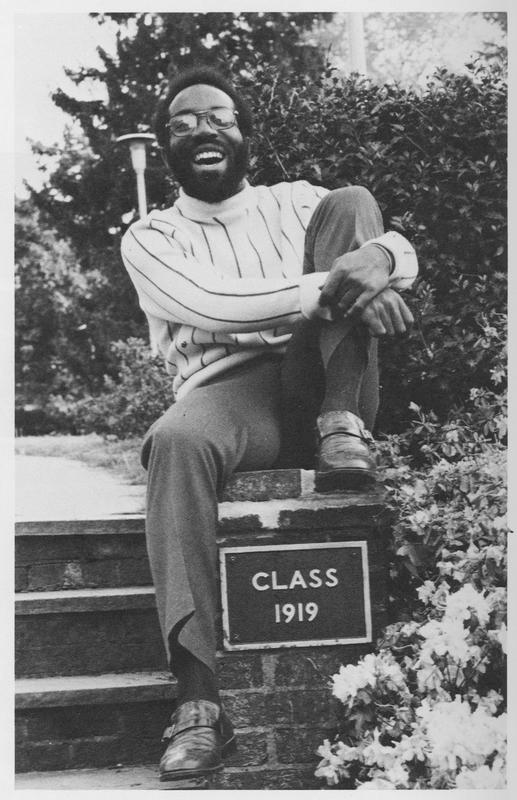In the last two Spartan Stories, we looked at the founding of UNCG’s Neo-Black Society (NBS) and the Spring 1973 Student Government Association (SGA) challenge to the organization’s funding. At the end of last week’s Spartan Stories post, UNCG Chancellor James Ferguson formed a faculty committee to investigate the Student Student Senate’s March 1973 decision to revoke the Neo-Black Society’s funding. Based on the committee’s findings, he invalidated the Student Senate’s decision.
But before the faculty committee’s report was even released, a number of Student Government Association members (including those who filed the original petition against the NBS) hired attorney Michael K. Curtis to represent them. In a March 30, 1973, letter to Chancellor Ferguson and Dr. Kendon Smith, chair of the faculty committee investigating the ruling, Curtis wrote that his “clients are seriously disturbed by the recent action of the University establishing a faculty advisory committee to consider and possibly recommend reversal of the Student Senate’s decision to terminate the funding of the Neo-Black Society.”
But, as we learned last week, the committee did indeed recommend that the NBS funding be restored, and Chancellor Ferguson agreed. Student Government Association vice president Jacqueline Coleman, one of the students represented by Curtis, responded to Ferguson’s decision with a letter stating her intent to appeal his ruling to the UNCG Board of Trustees. Additionally, on April 3, the Student Senate passed a resolution asserting that the Chancellor’s decision served to suspend “the grant of power to the Student Government Association.”
Before the next Board of Trustees meeting, however, five individual students who had hired Curtis as their attorney filed suit in U.S. District Court in April. Many other UNCG students signed petitions making it clear that these individual students did not represent the opinion of the student body at large. The suit specifically named Chancellor Ferguson, members of the Board of Trustees, and two officers of the Neo-Black Society as defendants. One of the two was NBS coordinator Leon Chestnut.
At their June 4, 1973 meeting, the Board of Trustees found “that the action of the Chancellor in invalidating the action of the Student Senate of March 26-27, 1973 in reclassifying the Neo-Black Society was appropriate and correct, based upon the evidence presented to him.” But the Board also concluded “in view of the contradictory nature of the evidence presented at the hearing on the appeal before the board on June 4, 1973, that the matter be remanded to the Student Senate for a hearing de novo on the classification of the Neo-Black Society, such hearing to be held within thirty days after the beginning of the Fall Semester, 1973.”
The University followed by filing a motion to dismiss the case in District Court. After fighting the dismissal, the students filing suit dropped their suit in November 1973. A consent order filed in January 1974 outlined the agreements reached by the court, the plaintiffs, and the defendants. The one stipulation outlined in the consent agreement refers specifically to a change to the Neo-Black constitution. The original NBS constitution stated “the aims of the Neo-Black Society are to promote understanding and a sense of unity among black students.” In the consent order, the NBS agreed to change its constitution “in order to dispel any appearance of engaging in discriminatory practices.” The new constitution clearly states that “the Neo-Black Society shall be open to and shall welcome all undergraduate students without regard to race, religion, color, creed, national origin, or sex.” With that one revision, the lawsuit concluded and all parties agreed that NBS would receive full funding as “an official activity of the University of North Carolina at Greensboro.”
The following Fall, on September 19, 1974, Vice Chancellor for Student Affairs James H. Allen, who had worked with NBS leadership throughout the funding challenge, wrote a memo to the NBS membership as they planned their annual banquet. He wrote “the contributions of the Neo-Black Society to racial understanding and an appreciation of the contribution of the Black culture and heritage are important to the educational mission of the University. I look forward with you to a significant year of achievement for the Society and offer my support to you in whatever ways necessary in accomplishing your goals for the year.”
By Erin Lawrimore

